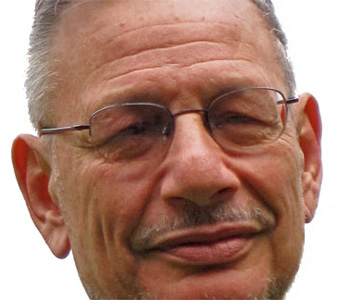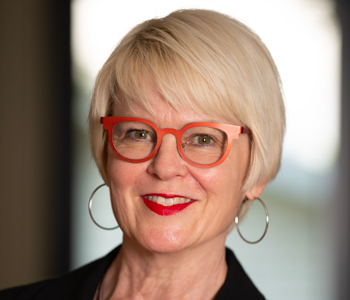Maha Nassar
Brothers Apart: Palestinian Citizens of Israel and the Arab World
Stanford University Press
288 pages, 6 x 9 inches
ISBN 978 1503603165
When people hear the term “Palestinians,” they usually think of people living in the West Bank, Gaza Strip, East Jerusalem, or in refugee camps and small communities scattered around the world. My book focuses on a group of Palestinians, who remained within Israel’s borders after the end of the 1948 War, and are not talked about as much. Most of them were granted Israeli citizenship in 1952, making them a small minority (about 13%) in the new Jewish state. However, their citizenship was not of equal status to that of Jewish Israelis, and they faced a host of discriminatory measures.
While other studies have rightly placed these discriminatory practices within the framework of settler-colonialism, I focus on how Palestinians—especially intellectuals—linked their position in Israel to larger global developments. The 1950s and 1960s were a time when colonized and semi-colonized people in the Arab world and beyond were contesting the various forms of subjugation they faced, and these larger global forces had a distinct impact on Palestinians in Israel.
Brothers Apart places the cultural and intellectual history of these Palestinian citizens of Israel within this global landscape and examines their relationship with the decolonizing world of the mid-twentieth century. I adopt a transnational framework that de-centers the Israeli state and centers instead on these intellectuals’ own worldviews. In doing so, I show how they saw the links between their conditions and those of other subjugated peoples, as well as how they drew inspiration from decolonizing movements around the world.
One remarkable aspect of this intellectual movement is that it occurred at a time when Palestinian citizens of Israel were quite isolated geographically and politically. They could not travel to Arab countries, and they could not freely import newspapers or periodicals. Brothers Apart reveals several strategies of resistance that Palestinian intellectuals in Israel adopted in their situation of isolation, such as sneaking Arabic texts across the border from neighboring countries, then surreptitiously reading and exchanging them with one another. They also developed a small but increasingly vibrant local press scene that connected them and their readers to broader intellectual and cultural developments. The most active group in this period was the Communist Party of Israel, whose publications were also the most critical of Israeli policies. As a result, they faced a great deal of censorship, which they struggled to overcome.
On one level, readers will recognize Brothers Apart as a historical study that sheds new light on the history of Palestinians and the Palestinian-Israeli conflict. On a broader level, I hope readers will also see in this book a fascinating case study of how marginalized intellectuals can use cultural and journalistic writings—including newspapers, literary journals, and poetry—to not only resist the oppression they face at home, but also to reach out to (and sometimes challenge) their fellow intellectuals abroad.
Most of the existing scholarship on Palestinian citizens of Israel revolves around Israeli policies and majority-minority relations. This approach reflects in part the dominance of anthropologists and sociologists and social science methodologies in studying this community. While some of this work is quite strong, it is mostly limited to dynamics within the state, and it glosses over the earlier years of the mid-twentieth century, which is my focus.
There exist also some great historical studies of this group, but they, too, tend to focus on Israeli state actions and Palestinian reactions to them. This focus tends to reflect the documents found in state archives, where most historians undertake their primary research. Naturally, state archives are going to reflect matters that are of concern to the state, such as domestic security and developments in the political landscape. But such state-centeredness can obscure larger transnational dynamics, and it risks turning the people under study into objects, rather than subjects, of their own history.
When I decided to undertake a historical study of Palestinian citizens of Israel, I initially assumed that I would have to go to the Israeli State Archives. But I embarked on my dissertation work during the height of the Second Intifada in 2002, and travel advisories were put in place for the region. Moreover, for a variety of reasons, I concluded that I could not, as a Palestinian-American who was visibly Muslim, go into the Israeli archives and realistically expect to receive sensitive documents pertaining to the Palestinian minority. I needed to find a new angle.
I was fortunate that my departmental home at the University of Chicago was in Near Eastern Languages and Civilizations. My professors—and the scholarship I was exposed to—tended to adopt more text-centered approaches for studying various historical time periods. That approach, coupled with my undergraduate training in English literature and my knowledge of Arabic, led me to decide to write more of a literary history, especially since so many famous Palestinian writers and poets came from this community.
As I pored over the works of these writers, I found that while they were certainly concerned with Israeli structures of oppression, that was not the outer limit of their intellectual work. I was struck by how closely engaged they were with political, social, and cultural developments taking place around the world. They celebrated popular victories against colonial and imperial regimes, not just in places like Egypt and Iraq, but also in the Congo and Vietnam. I was especially struck by how this Afro-Asian solidarity was taken up by Palestinian intellectuals who were physically and politically isolated from the rest of the world.
I was also intrigued by how Arab intellectuals understood the condition of the Palestinian citizens of Israel, and how that understanding developed over time. There was a lot of ignorance—and suspicion—about this community in the Arab world. Examining Arabic literary and journalistic writings from a wide variety of outlets helped me trace how that suspicion gradually turned to admiration, especially after the Six-Day War in 1967. But it wasn’t a straightforward transition, and I tease out those complications in the last chapter.
In the fourth chapter, “Palestinian Spokesmen,” I discuss little-known dimensions of two famous Palestinian writers: Mahmoud Darwish and Ghassan Kanafani. While Darwish is best known for his poetry and Kanafani is best known for his novels, I analyze their journalistic essays from the early 1960s to mid-1960s instead. In doing so, I show that they were part of a generational cohort that was instrumental in the shift toward an intellectually grounded Palestinian national liberation project.
For example, I discuss previously unknown essays by a young Darwish in which he insisted that a writer must be engaged with decolonization projects at home and abroad to be of any relevance in the world. These essays, along with his on-the-ground political activism, put into context his early poetry, including his most famous poem, “Identity Card.”
Kanafani, who was exiled from Palestine in 1948 and lived in Beirut, was a champion of the Palestinian literary figures in Israel at a time when no one else had even heard of them. He published an essay about them in the prestigious, Beirut-based cultural journal, al-Adab, in 1966. While Kanafani’s appraisal of them would not get traction among other Arab intellectuals until after the 1967 War, his early work shows the determination of Palestinian intellectuals in exile to bring Palestinians together through literature since they could not physically meet each other.
This chapter demonstrates the centrality of texts in the organic development of Palestinian nationalism among intellectuals who span across different geographic locations. It also highlights the ways in which these intellectuals were deeply involved in politics, activism and political organizing, providing a vivid example of what Antonio Gramsci referred to as “organic intellectuals.”
I hope Brothers Apart will help readers develop a more nuanced understanding of Palestinian culture and society. Palestinians are rarely mentioned in American media outlets unless there is an uptick of violence or heightened tension with Israel. I hope that cultural and intellectual histories like this one will allow for a deeper and more multidimensional appraisal of the Palestinian condition. Central to this appraisal is the role of writings in their history. With a few exceptions like Darwish and Kanafani, Palestinian writers are still largely unknown to non-specialists. But Palestinians have a rich literary tradition that should be understood as part and parcel of Palestinian politics and society more broadly.
A broader implication of my book, which I am expanding upon in my newer projects, relates to the numerous parallels between Palestinian citizens of Israel and Black Americans. Groups like Black for Palestine are highlighting the parallels between structures of oppression facing Black Americans and Palestinians under occupation today. But there are also parallels that Black Americans and Palestinian citizens of Israel share, such as dealing with police brutality and unequal economic and educational opportunities. Black Americans and Palestinian citizens of Israel also face similar racialized discourses of “criminality,” “laziness,” and “danger.” There is a history to these parallels as well. In a 1966 essay, Darwish wrote that when he read James Baldwin’s book, Nobody Knows My Name, he felt as if Baldwin was speaking directly to his own experiences as a Palestinian in Israel.
Finally, I hope this book will inspire a broader rethinking of who is recognized as an intellectual. Today, we often think of “intellectuals” as part of the social and cultural elite: they hold advanced degrees and have well-paid positions that allow them to demonstrate their scholarly knowledge. But there are many organic intellectuals in America and around the world who are also leaders in social justice and other movements, and often their ideas are not taken as seriously. Intellectuals who are also engaged in on-the-ground organizing have had their ideas put to the test in the most direct way possible. We should be paying closer attention to them.




We don't put paywalls. We don't distract you with ads. We don't sell your data.
Please help to keep this running!